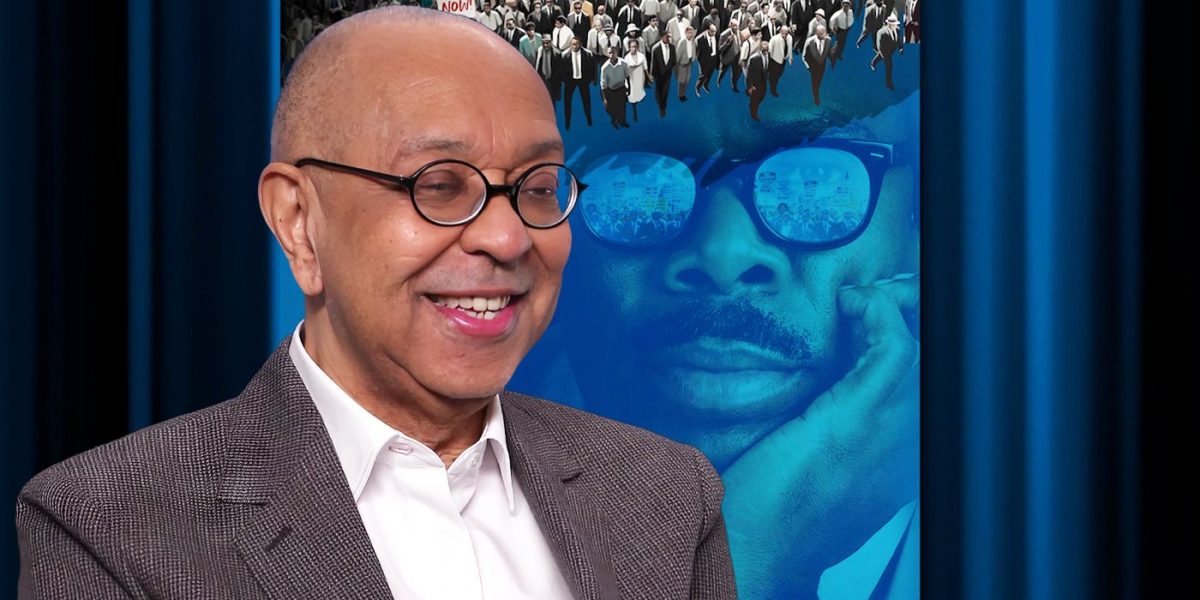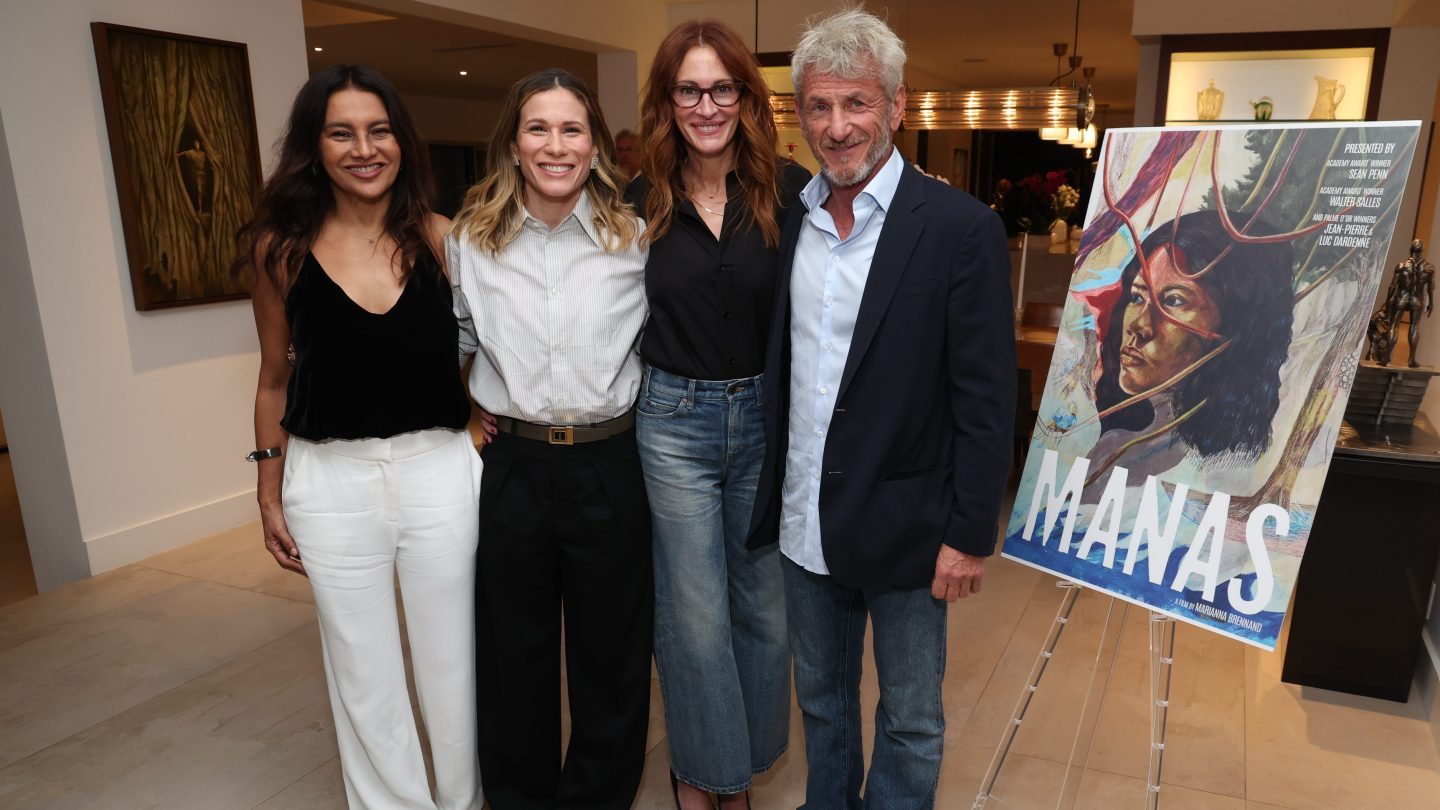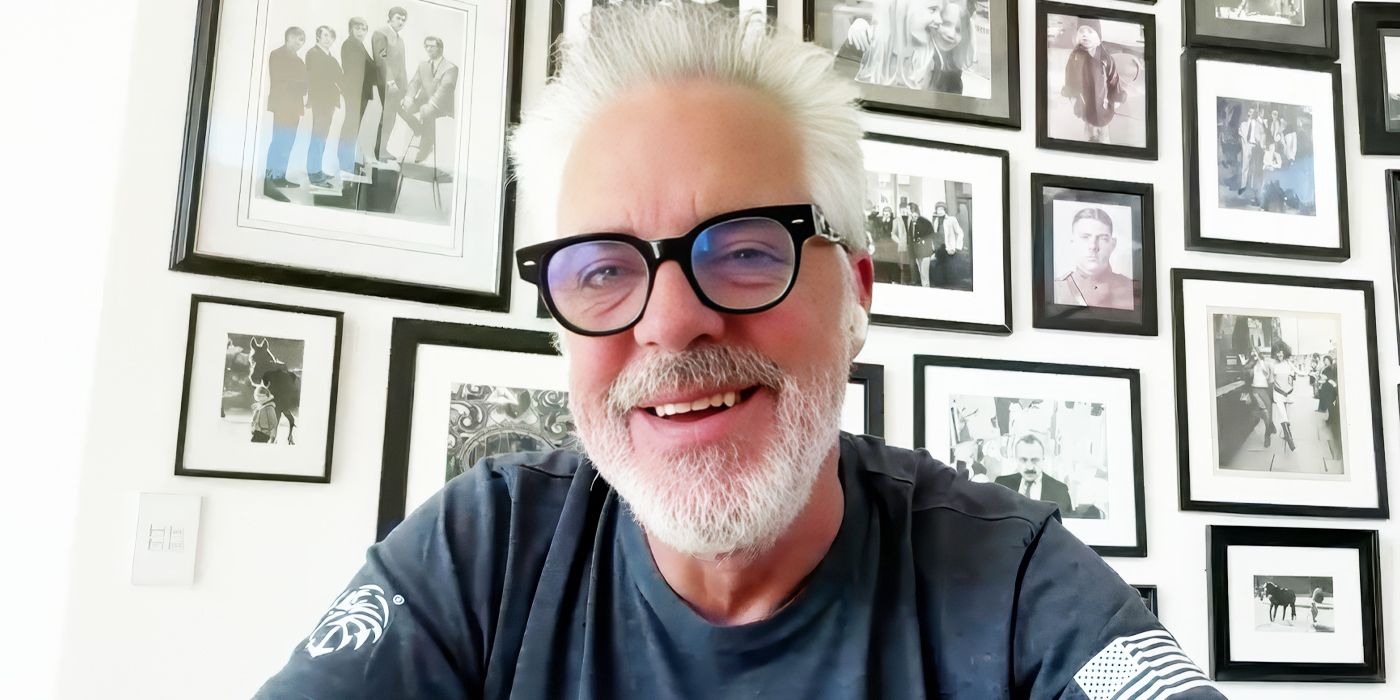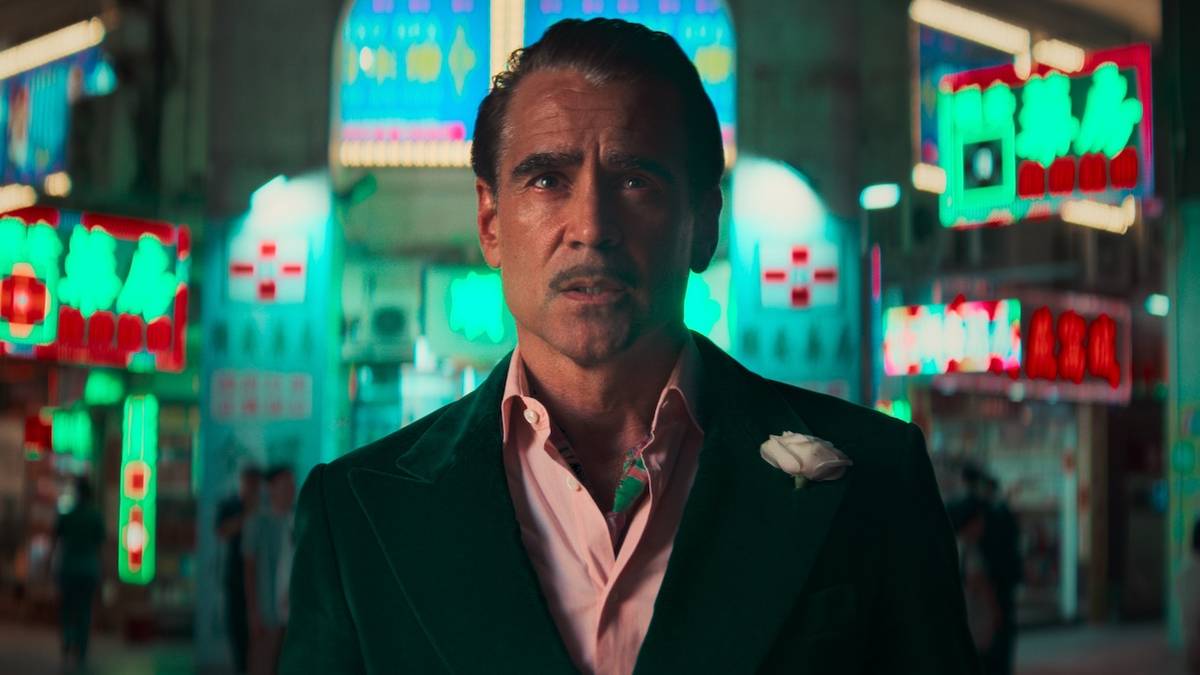
Here’s Why ‘Rustin’ Isn’t a Typical Biopic, According to the Director
Nov 20, 2023
The Big Picture
George C. Wolfe’s film Rustin tells the important but largely unknown story of Bayard Rustin, a gay Black man and activist who played a crucial role in the civil rights movement, particularly the March on Washington. Rustin’s ability to organize and orchestrate the monumental march in just eight weeks without the use of modern technology highlights his brilliance and attention to detail. The editing process of the film involved making choices to focus on specific aspects of Rustin’s life, such as his commitment to activism and his poetic dedication to making things better and cleaner. There may be deleted scenes available in the future.
George C. Wolfe’s contribution to American theater can’t be understated, but he’s also earned award nominations for his work in film and television for features like Lackawanna Blues and the feature adaptation of The Immortal Life of Henrietta Lacks with Oprah Winfrey. The playwright and director returns to features for Netflix’s Rustin, reuniting him with the film’s star, Colman Domingo (Ma Rainey’s Black Bottom), to tell a story history tried to forget.
Domingo stars in his first leading role as Bayard Rustin, a real-life “brilliant organizer,” whose skills, Wolfe tells Collider’s Steve Weintraub, no one could deny – even those who would deny the most basic of human rights. Working alongside historical figures like Martin Luther King Jr. (played by Aml Ameen) and Ella Baker (Audra McDonald), Rustin was a crucial part of the civil rights movement, and in particular, the monumental March on Washington. Though his talent was unmatched in preparing a colossal march in eight weeks, Rustin’s story is largely unknown due to his being a gay Black man and activist in the ‘60s.
During their discussion, Wolfe explains why, of all the many fascinating elements of Rustin’s life, the March on Washington became the focus of the film. He shares the speech that was dropped from the final cut, what changed from the original screenplay in the editing process, and what remained, if we’ll ever see deleted scenes, and what it was like working with an ensemble cast. Check out the video above the article or the full transcript below to find out more about Bayard Rustin and why it’s important for his story to be told.
Rustin Activist Bayard Rustin faces racism and homophobia as he helps change the course of Civil Rights history by orchestrating the 1963 March on Washington. Release Date November 17, 2023 Director George C. Wolfe Cast Colman Domingo, Chris Rock, Glynn Turman, Aml Ameen Rating PG-13 Runtime 106 minutes Main Genre Drama Writers Julian Breece, Dustin Lance Black
COLLIDER: I really want to start with a sincere congratulations on the movie. I thought you did such a great job with the material and with the film. The thing that I found fascinating is that his story is so incredible that there are so many parts that could be a movie. Talk a little bit about focusing on this part of his life when there are so many other chapters, too.
GEORGE C. WOLFE: Well, that wasn’t my job. It’s not a miniseries; it’s a film. So, I wanted to start at the point where I think the country is confronting itself in an extraordinary way, just in the sense that Brown v. Board of Education has been in existence for quite some time and the South is just pretending it doesn’t exist. So there’s a sense of activism and a sense of responsibility. It’s also at a time where many people have been engaged in the civil rights movement for quite some time, especially focusing on nonviolence, and that’s not resulting in change, so they’re beginning to consider whether or not they need to take a more aggressive point of view, a more segregated point of view.
Bayard, who has always been out, in terms of a 1963 definition of an out gay man, there are things that the FBI particularly have dug up about him, and [they] are threatened. So, it feels like there’s pressure coming from all different directions, plus they’re trying to pull off this country’s largest peaceful protest in eight weeks. So that pressure dynamic, him being tested, him grooming a whole generation of incredible young people to be smart, active, and committed to making their country better, all of that seemed to be a perfect equation to play around with instead of, “He was born, and then he grew up, and then he went to school,” blah, blah, blah.
Bayard Rustin, the Brilliant Organizer
Image via Netflix
The thing that’s so crazy, which I don’t think people realize, is pulling off the march in eight weeks, no social media, no cell phones. I mean, you would think it’d take a year to pull this thing off. Can you talk about that aspect of how incredible he was just to be able to do this?
WOLFE: Even people who had issues with him, everyone connected to the civil rights movement, knew that he was the most brilliant organizer. He had that brain that did not skip or miss any detail, and he trained his team of kids to think the same way. There was a speech in the film, which isn’t there anymore, in which he talked about, “Every night, I want you to go from the beginning to the end of the march and think about every single detail, and think about everything that you think you’ve solved, and think about those spaces after those things that you think you’ve solved and see if there’s something you’re missing.” What he was instructing them to do was what he did every single night [laughs], I believe, was going over the details over and over and over and making sure every single thing is done, including getting Mayor Wagner to alter the subway schedule for a rush hour schedule for early in the morning so everybody could get their buses to safely get there. It’s just no detail went without him scrutinizing and picking at it and making sure everything flowed brilliantly.
Why Rustin Speaking at the March Was Removed
Image via Netflix
You bring up editing, and I love the editing process because it’s where it all comes together. Talk about how the film changed in the editing room, perhaps in ways you didn’t expect.
WOLFE: It was very interesting. Other people had relationships, like A. Philip Randolph, there was a moment when his wife was more involved, and Bayard and her danced together. But that became extraneous because it was about A. Philip Randolph’s relationship with Bayard, and that kept on happening. The kids told the story about how they got involved in activism, and that scene went away. One of the most interesting things that left was Bayard spoke at the March on Washington—he read the list of demands—and it was in this film for a very, very long time, but I ended up eliminating it because A. it wasn’t his language, it was just a list, and B. it didn’t have a kind of poetry. So, the most poetic moment becomes, at the end, him picking up the trash and him continuing to do what he does, what he had always done, which is commit to making whatever he was connected to better and stronger and clearer and, in this case, cleaner.
Will We Get ‘Rustin’ Deleted Scenes?
One of the things that I am waiting for Netflix to do, because they can do anything, is offer deleted scenes on the platform, or offer extras in a way that they sometimes don’t do. Is that something you’ve talked to them about? I’d love to see Colman do some of these scenes.
WOLFE: No, I haven’t talked to them about that. Maybe I will. Thank you.
Working With the Cast of ‘Rustin’
Image via Netflix
[Laughs] I’m just throwing that out there. I also have to touch on Colman’s amazing performance. He’s so brilliant in this. Can you talk about working with him in crafting this performance and what it was like on set when you needed something to be tweaked? What was it like working with Colman?
WOLFE: I worked with him the same way I worked with him on Ma Rainey’s [Black Bottom], the same way I work with every other actor. We have our two-week rehearsal period, which is spent forming relationships not just between me but between the characters – between Tom, between Elias, his two love interests, with Ella, which was played by Audra McDonald. So, it was about building foundations and building texture so that by the time we started shooting, those relationships had a sense of history, had a sense of zones that were safe and zones that were violated in a good storytelling way. So it was all just a part of the process, and you work to try to build a sense of safety so that the actors can be as vulnerable so that, therefore, the impact of what they’re receiving from the other actor magnifies their work. That’s what happened when you had a scene with Colman and Audra McDonald, or you have a scene with Colman and Aml Ameen or A. Philip Randolph. The power dynamics and the intensity of the performances, of his performance meeting their performance and their performance meeting his, creates something that was really combustible and exciting, and, I think, very fragile.
Rustin is available to stream on Netflix in the U.S.
Watch on Netflix
Publisher: Source link
Pulitzer Prize Winning War Photojournalist Lynsey Addario Balance Horror & Home In Absorbing Doc [TIFF]]
Watching “Love+War,” a documentary about Pulitzer Prize–winning war photojournalist Lynsey Addario, is a reminder of why so many nonfiction films can feel flat compared to narrative features. Too often, they’re just hagiographic highlight reels, trotting out a subject’s greatest hits…
Sep 17, 2025
‘Dust Bunny’ Review: Bryan Fuller’s Charming Directorial Debut Is ‘León: The Professional’ For Kids
For years, Bryan Fuller has created and written TV shows that balance whimsy with darkness, making a name for himself with such shows as Dead Like Me, Pushing Daisies, and Hannibal. Despite not directing the aforementioned shows, Fuller’s most iconic…
Sep 17, 2025
‘Ballad of a Small Player’ Review: Colin Farrell Can’t Save This Rare Miss From ‘Conclave’ Director Edward Berger
For the last few years, director Edward Berger has been on a hot streak. His 2022 All Quiet on the Western Front was a surprise hit at the Oscars, earning nine nominations — including one for Best Picture — and…
Sep 16, 2025
Bringing the Franchise Full Circle
With The Conjuring: Last Rites, director Michael Chaves takes the helm of the ninth entry in the long-running Conjuring Universe, returning audiences to the chilling blend of supernatural horror, intimate family drama, and faith-driven resilience that made the original films…
Sep 16, 2025








![Pulitzer Prize Winning War Photojournalist Lynsey Addario Balance Horror & Home In Absorbing Doc [TIFF]]](https://www.filmibee.com/wp-content/uploads/2025/09/Pulitzer-Prize-Winning-War-Photojournalist-Lynsey-Addario-Balance-Horror.jpg)


